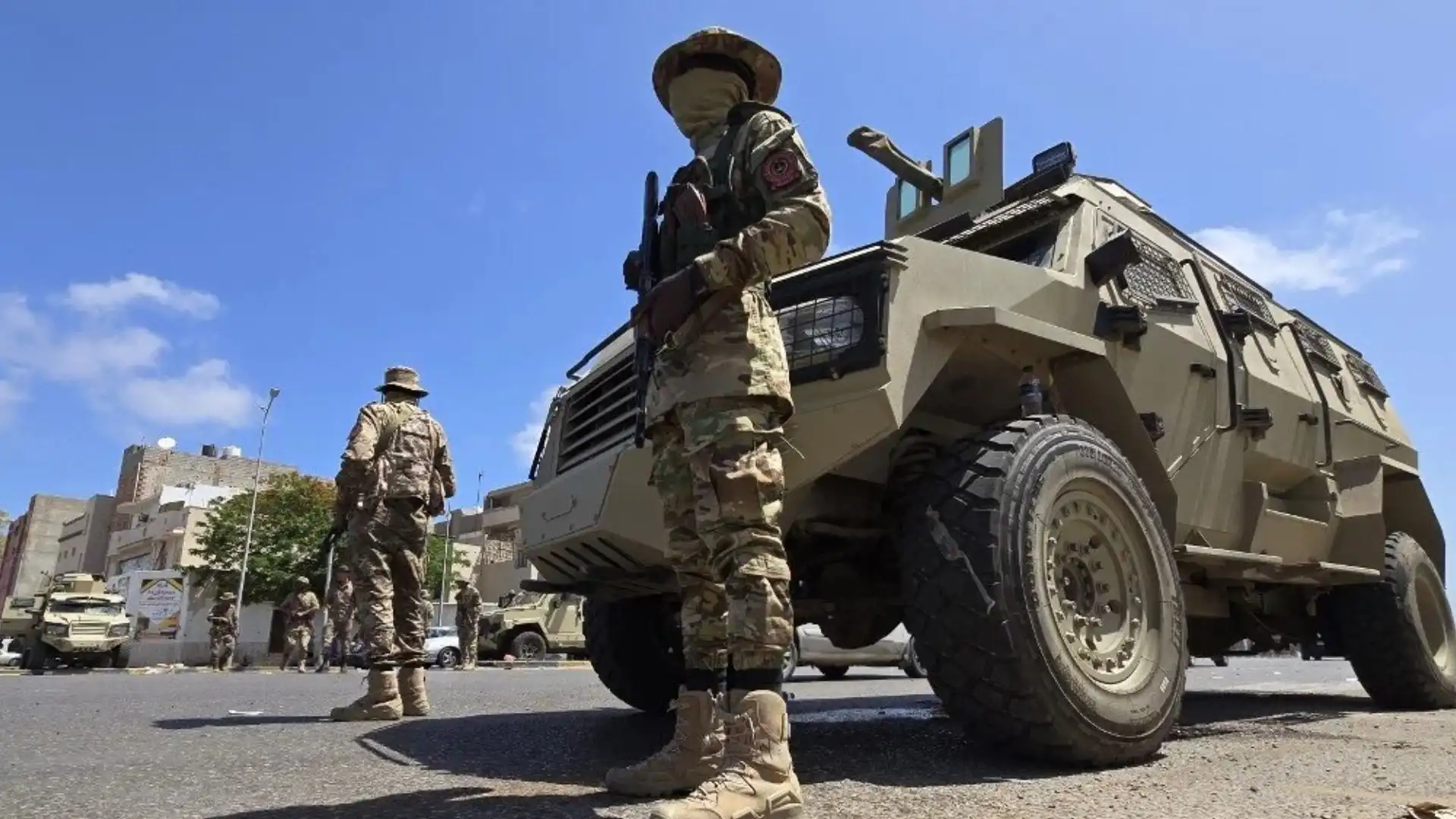Tripoli locked down as clashes erupt following alleged death of militia commander

The Libyan capital descended into chaos overnight as deadly clashes between rival armed factions erupted following the reported assassination of a prominent militia leader.
Flights at Mitiga International Airport were suspended, and several districts in the capital were effectively shut down amid heavy gunfire and plumes of smoke.
The unrest was sparked by the unconfirmed death of Mahmoud Hamza, widely known as Commander Ghnewa, head of the Ghnewa Brigade aligned with the Ministry of Interior.
His suspected killing triggered intense fighting between the Special Deterrence Force (Rada) and the 444th Brigade, two of Tripoli’s most powerful military groups.
Fighting centered around Mitiga Airport in eastern Tripoli, prompting emergency evacuations of hundreds of passengers and the diversion of incoming flights to alternative airports in Misrata and Benghazi.
Libya’s Ministry of Transport released a statement emphasizing, “The safety of civilians takes precedence over all other considerations.”
Residents reported hearing sustained artillery and machine-gun fire in the neighborhoods of Soug Jomaa, Ain Zara, and Salah Eddine.
Schools and government offices remained closed throughout Monday, while the embassies of Italy and Turkey issued urgent travel advisories.
While the death of Commander Ghnewa has not been officially confirmed, videos widely shared on social media appear to show heavily armed 444th Brigade fighters maneuvering through the capital and securing key checkpoints previously held by Rada forces.
Footage also captured injured fighters being transported away from the frontlines.
The clashes have drawn international concern. The United Nations Support Mission in Libya (UNSMIL) urged all factions to exercise “absolute restraint” and demanded an immediate ceasefire.
However, the country’s interim Prime Minister, Abdelhamid Dbeibah, has yet to make a public statement.
The eruption of violence underscores Libya’s fragile security environment and the faltering progress of UN-backed efforts to unify the military.
With long-delayed national elections still pending, the power struggle among militias continues to pose a serious threat to the country’s path toward stability.
About The Author
dailymailafric
I am an avid African news observer, and an active member of Daily Mail Africa.
I’m Passionate about staying informed on diverse topics across the continent,
I actively contribute to publishing on political, economic and cultural developments in Africa.



